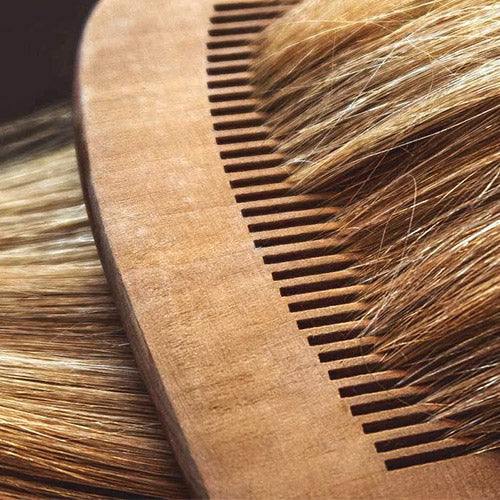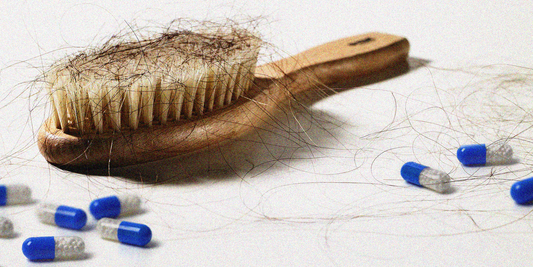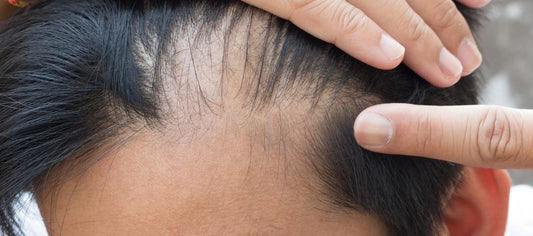The 4 Best Treatments for Postpartum Hair Loss
As your due date draws near, you’re probably looking forward to losing your big belly and extra baby weight.
But there’s one thing you may not look forward to losing: Your thick, shiny pregnancy locks.
It’s not your imagination. Most women find that pregnancy makes their hair thicker. And it’s not the stress of having a newborn that’s making your hair fall out! Here’s what’s up with your pregnancy hair, what you can expect postpartum, and what you can do about it.
How your hormones change during pregnancy and postpartum
During pregnancy, your hormones change dramatically.One of the first to spike is human chorionic gonadotropin, or hCG. That’s the hormone your pregnancy test measured and its rising levels indicated that you were pregnant. Pregnancy also causes several other hormone levels to rise, including estrogen, progesterone, oxytocin, and prolactin. Your blood volume also rose during pregnancy, to as much as 50 percent greater volume than normal by your due date.
Immediately after your baby is born, several of your hormone levels drop quickly, including estrogen and progesterone. Those hormones will be almost back to normal levels within 24 hours after birth, although prolactin will stay high as long as you’re breast-feeding.
Your blood volume also decreases, but its drop is more gradual. It gets back to normal a few weeks after your baby arrives.
How hormones affect your hair
Hormones are the biggest reason for your pregnancy hair changes and postpartum hair loss.During pregnancy, your high levels of estrogen prevented your usual rate of hair loss. Normally, your hair falls out in small amounts every day. During pregnancy, your hair loss decreases. The effect is compounded by your increased blood volume and circulation, which also causes your hair to fall out less than normal.
So after your baby arrives and your hormone levels drop, your hair makes up for lost time by falling out in much bigger clumps than it normally does. The total volume of your hair loss probably isn’t more than you would have lost over the last nine months, it just seems like it because it’s happening all at once.
Postpartum hair loss can set in any day after your baby arrives, and it sometimes continues as long as a year. It usually peaks around the 4-month mark, so if your baby is a few months old and you’re still losing clumps of hair, that doesn’t mean it’s time to panic!>
Postpartum hair treatments to try
It’s normal for your hair to thin out after pregnancy. If it’s not worrying you, you don’t need to do anything to treat it. And, unfortunately, there is nothing that has been shown to prevent or slow postpartum hair loss. But if your hair loss is bothering you, there are treatments you can try to make your hair appear fuller and healthier.
1. Skip the styling
Heating your hair with a dryer or curling iron may make it look thinner. Try to hold off on fancy styling and let your hair air-dry till the thinning tapers out. Brushing too hard can also cause your hair to fall out in bigger clumps, so be gentle when brushing and don’t brush more than once a day. You can use the extra time to cuddle your baby or catch up on sleep!
2. Eat well
Including a variety of fruits, vegetables, and healthy proteins in your diet is the best way to make sure your body is getting all the nutrients it needs.Foods that are suggested by some to improve hair health include dark leafy greens (for the iron and vitamin C), sweet potatoes and carrots (for the beta carotene), eggs (for the vitamin D), and fish (for omega-3s and magnesium).
3. Take your supplements
Supplements shouldn’t be a substitute for a varied diet, especially when you’re a new mom with a baby to take care of. But they may help as a supplement if your diet is not well-balanced. While no specific vitamins have been shown to affect hair loss, they are important for overall health. It is often recommended to continue your prenatal vitamins after your baby is born, especially if you are breast-feeding.4. Use Thickening Shampoo with Diosmin
Thickening shampoo transformed your hair from the very first use, becoming stronger, regenerated and healthier. Unlike other products dedicated to hair regeneration available on the market, the Hair Thickening Shampoo acts not only during washing but also in between washes.
This is because diosmin, an active agent, remains in the scalp’s pores even after rinsing. This results in better, long-term blood flow in hair follicles and a visible effect of fewer hair lost when combing – already after 2–3 applications. A permanent effect of hair thickening is achieved after 2 – 3 months of regular application. This time is required to strengthen and nourish hair roots that produce new hair.
This product does not contain parabens, SLS, SLES or silicones so it's safe for you and your baby. Therefore it does not have strong washing or foaming properties.
It is recommended specially during pregnancy and postpartum period for women who have weakened hair folicles and experience excessive hair loss.
For better result and for longer hair it should be combine with Thickening Conditioner.
The hair will be full of vigour, beaming with energy and vitality, delightfully shiny, smooth and light.













